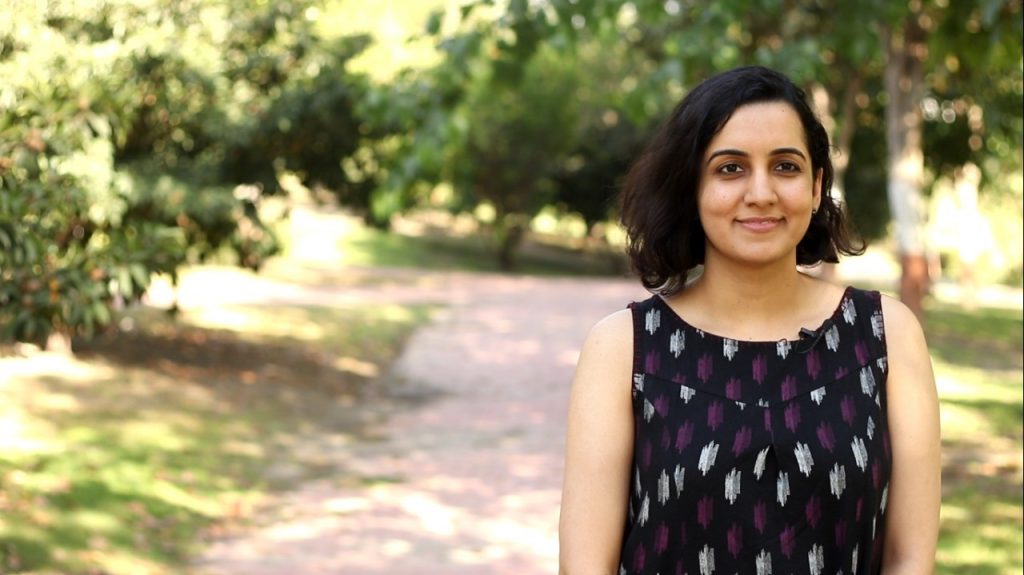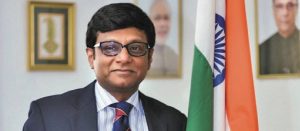
We are the sum of our lived-in experiences and how we respond to them. That’s certainly true of Prof. Lipika Kamra, who was impacted by the conversations around gender and patriarchy during her college days. Today, the Assistant Professor, Jindal School of Liberal Arts and Humanities focuses her research on gender, development and democracy in India. She believes that her research skills also help her understand and pay attention to the needs of her students. For someone who got a scholarship to pursue her Ph.D. at Oxford University, you would think academia was the obvious choice. But Prof. Kamra had set out wanting to be a journalist actually. We follow the story of what has been Journalism’s loss yet Academia’s gain.
Early influences
Growing up in a family involved with the business world, Prof. Kamra was a quiet and studious child. Living in Delhi, which is also largely the picture elsewhere in the country, she remained aware of different rules and restrictions for boys and girls. Her thoughts found voice in her all-girls’ Lady Shri Ram College in Delhi University, which she calls a liberating experience. “It was the space where we would have a lot of conversations about gender and patriarchy. It helps you understand your life situation and how you can get out of it. It was a turning point for me and how I started looking at the city itself! There have been several discussions since the Nirbhaya incident, on safety in public spaces, how women shape their lives, the Indian women narrative, etc. and these have been life transforming,” she says.
Research allows time to reflect
Prof. Kamra chose academia over journalism because the fast-paced nature of the latter would mean less time to ponder over things you see and observe around you. Her’s definitely is a more thorough style of research. When she was doing her doctoral research in West Bengal, she learned Bengali. She calls the experience challenging but enormously also enriching. “In 2013 – 14, I did field work in what once used to be a Maoist zone. I was looking at women’s development programs and what those mean for reconstructing relations between the state and the citizens. I spent a lot of time talking to poor rural women who were waiting for developmental aids, facilitated by the state. It was a challenging experience but helped me a lot as an academic and teacher today,” she recalls.
Oxford beckons
The immediate impact of the research was a scholarship for her Ph.D. at Oxford. Prof. Kamra remembers the days spent there writing her thesis and attending number of events including seminars and guest talks. Throughout the duration, she would be in touch with her supervisor but there were other interesting discussions that offered further valuable exposure. Talking of her time in Oxford she says, “If you are researching for your Ph.D. there you are considered an expert in the area and are treated like a professional. Even though my research work was in India I could have conversations on similar themes with colleagues from Africa or Latin America. So you move your narrow focus from a small village to various contexts and differences around the world. I believe the exposure to academics in different parts of the world was important in building my own intellectual thinking and development over time,” she adds thoughtfully.
How research benefits the classroom
Presently, Prof. Kamra is working on a book based on her PhD research while doing field work in rural Haryana. She also tries to find time and watch the latest movies on the first weekend because it gives her a handle on pop culture and understanding how people are representing it. Clearly, it’s a case of once an academic, always an academic. But that’s good news for students of JSLH, who gain from the experience of the dedicated researcher, who is up to date with pop culture references. She smiles and responds in all seriousness. “Since most of the research methods I use are ethnographic, you spend a lot of time talking to people. So, you build a persona where you always seek what people have to tell you. This skill of observing and talking to people helps me in the classroom as well. It helps me understand what students are thinking, where they might need more explanation, how they are as people and how I might be able to relate to them,” she concludes revealing the reason behind her classroom connections that enable growth of future professionals, academics, and of course researchers like her.


